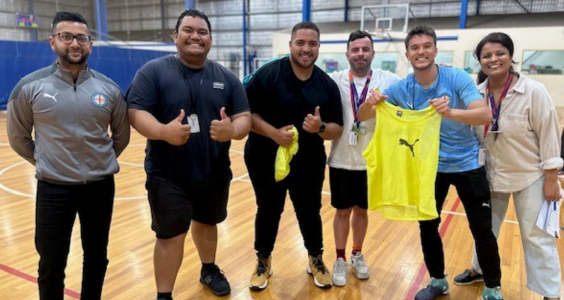Background
In 2023, SECL conducted a community consultation involving more than 70 diverse men and boys to explore their unique perspectives on identity, values, gender roles, and violence against women. The findings were compiled in a report, which emphasised the need for trust-building approaches, positive role models, and engaging recreational activities to prevent violence against women.
Solution
Following the consultation, students from Lyndale Secondary College were keen to be involved in a program to strengthen their relationships and improve their wellbeing. In partnership with the school and Melbourne City Football Club, South East Community Links designed and implemented an 8-week Healthy Masculinities program for Year 9 and 10 male students from refugee and migrant backgrounds.
This program featured classroom discussions and soccer workshops, addressing topics such as healthy masculinities, intersectional identities, and the societal expectations placed on men. Our engagement aimed to support students to understand the gendered drivers of violence against women and the actions they could take to prevent violence.
The environment fostered safe, open dialogues, encouraging critical thinking and personal reflection on issues like respect, consent, and gender stereotypes. The program ended with a celebration that included speeches from inspirational guest speakers and a soccer tournament, signifying the strong support from the school and the participants’ families, which was key to the program’s success.
Outcomes

Increase in understanding of societal pressures on men and boys from 35% to 63%.

Increase in awareness of the link between unhealthy masculinity and violence against women from 14% to 72%.

Increase in understanding about consent from 50% to 82%.

Increase in confidence to call out disrespectful behaviour from 42% to 54%.

Increase in awareness of the role men can play to prevent violence from 14% to 72%.

Increase in awareness of support services such as mental health from 50% to 63%.
This program is funded under Supporting Multicultural Communities and Faith-Based Communities by the Victorian Government Department of Premier and Cabinet
